
Dustin Johnson is a Professor in the Animal and Rangeland Sciences department and is the State Rangeland Outreach Coordinator. His extension and applied research program centers on improving the efficiency and sustainability of the ranching industry in eastern Oregon. Dustin has worked for OSU since 2007 and holds a masters in Rangeland Ecology and Management from OSU. Ongoing efforts include 1) training and assisting ranchers and public land management agency partners in the development and maintenance of cooperative rangeland and grazing monitoring programs, 2) developing various electronic tools that aid ranchers in collecting, organizing, and evaluating cattle and grazing records, 3) engaging with diverse stakeholders to develop collaborative approaches to addressing complex natural resource and wildlife management issues, and 4) developing science-based tools and strategies for functional restoration of rangelands and wetlands that have been degraded by invasive plants.
Contact: Dustin.Johnson@oregonstate.edu

Jonathan Dinkins is an Associate Professor in the Animal and Rangeland Sciences department. Jon holds a PhD in Wildlife Biology from Utah State University, and has been with OSU since 2016. In his current position he focuses on shrub-steppe wildlife ecology, which includes research and outreach through Extension. Focal areas of interest include topics related to animal behavior, population dynamics, predator-prey dynamics, wildlife habitat use, and human-wildlife interactions.
Contact: Jonathan.Dinkins@oregonstate.edu

Katie Wollstein is an Assistant Professor of Practice and Rangeland Fire Specialist. She holds a M.S. from OSU and a Ph.D. from the University of Idaho. Katie’s research and outreach are focused on (1) adaptive co-management of rangeland resources, (2) social and policy conditions for mitigating fire risk across mixed-ownerships, and (3) collective arrangements for managing public goods such as wildlife and fire resilience. Within the OSU Extension Fire Program, Katie aims to assist ranchers, agencies, and other rangeland stakeholders in leveraging their different tools, capacities, and types of knowledge to enhance social and ecological resilience.
Contact: Katie.Wollstein@oregonstate.edu

Vanessa Schroeder works as a Senior Faculty Research Assistant I for Oregon State University’s Extension Service, specializing in rangeland ecology to support wildlife habitat. She holds a masters degree in Wildlife Science from OSU. Her applied research and extension projects fall under three themes 1. Evaluating the effects of land management practices on sagebrush-obligate avian species and habitat, 2. Sagebrush steppe management and education, 3. Developing management solutions for degraded or threatened sage-steppe habitat.
Contact: Vanessa.Schroeder@oregonstate.edu
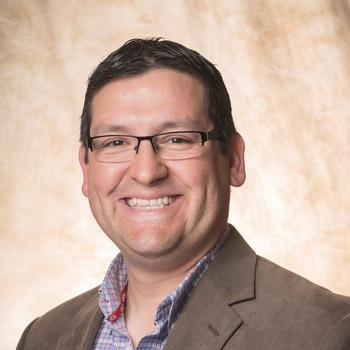
Sergio Arispe, Ph.D., is the livestock & rangeland field faculty member in Malheur County. His extension and research programs support beef and dairy producers in the areas of nutrition, reproduction, behavior, and stress. Additionally, he works on the high desert sagebrush steppe to promote a functionally healthy ecosystem.
Contact: Sergio.Arispe@oregonstate.edu
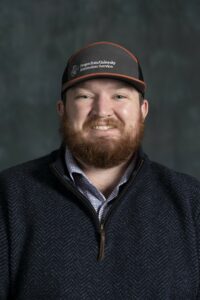
Will Price is an Assistant Professor of Practice in the Animal and Rangeland Sciences department and is the Extension Livestock, Rangeland, and Forages Field serving Baker and Union Counties. He holds a M.S. from the University of Idaho. His Extension education and research focuses on improving rangeland and pasture based livestock production. Will recently defended his PhD dissertation in Rangeland Ecology & Management at OSU, his research is focusing on 1) ecological outcomes of dormant season grazing to control invasive annual grasses, 2) livestock performance while dormant season grazing, and 3) how cattle grazing behavior differs during traditional summer grazing and dormant season grazing.
Contact: William.price@oregonstate.edu

Stephanie LeQuier is a Faculty Research Assistant in the Department of Animal and Rangeland Sciences at Oregon State University. She holds a bachelor’s degree in Zoology from the University of Vermont and has been working at OSU since 2019. Stephanie manages multiple research studies in eastern Oregon that are 1) investigating the mechanisms behind greater sage-grouse population declines, and 2) evaluating lethal and non-lethal management of common ravens to increase sage-grouse reproductive success.

Shawn Szabo is a Master’s student in the Rangeland Ecology department at Oregon State University. His research focuses on the occupancy, abundance, and diet of ravens and raptors at communication sites throughout the Great Basin. Jonathan Dinkins is one of his co-advisers.

Brandon Corry is a master’s student in the environmental sciences program at Oregon State University. His research focuses on the use of autonomous recording units and machine learning based audio analysis programs to remotely monitor avian population dynamics in the sagebrush ecosystems of Steen’s Mountain and Eastern Oregon.

Ian Scott is a master’s student in the Rangeland Ecology department at Oregon State University. His research focuses on sage-grouse breeding season movement responses to human activities, structures, non-native grazers, and predators. His research is primarily based in the Bighorn Basin near Cody, Wyoming.

Lauren Gramberg is a Master’s student in the Forest Engineering, Resources, and Management Department at Oregon State University. She is co-advised by Dr. Jim Rivers in the College of Forestry and Dr. Jonathan Dinkins in the Animal & Rangeland Science Department. Her research is quantifying how native bee community compositions respond to increasing levels of invasive annual grass cover across the sagebrush systems of Steens Mountain. Prior to her master’s work, Lauren worked with sage-grouse as part of the Sage-Habitat Team.
Past Sage Habitat Team Members

Kayla Ruth is a past PhD Student in Rangeland Ecology at OSU. Her research focused on direct and indirect effects of livestock grazing and predators on greater sage-grouse in Wyoming. Kayla has also worked on sagebrush-steppe songbirds prior to starting her PhD.
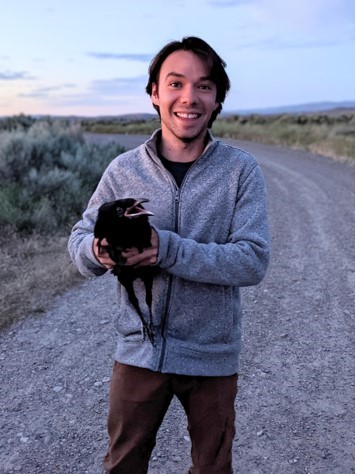
Richard Rich was a Master’s student in the Department of Animal and Rangeland Sciences at Oregon State University. His research focused on interactions between common ravens and greater sage-grouse and assessing sage-grouse nesting success in response to raven management methods in eastern Oregon.
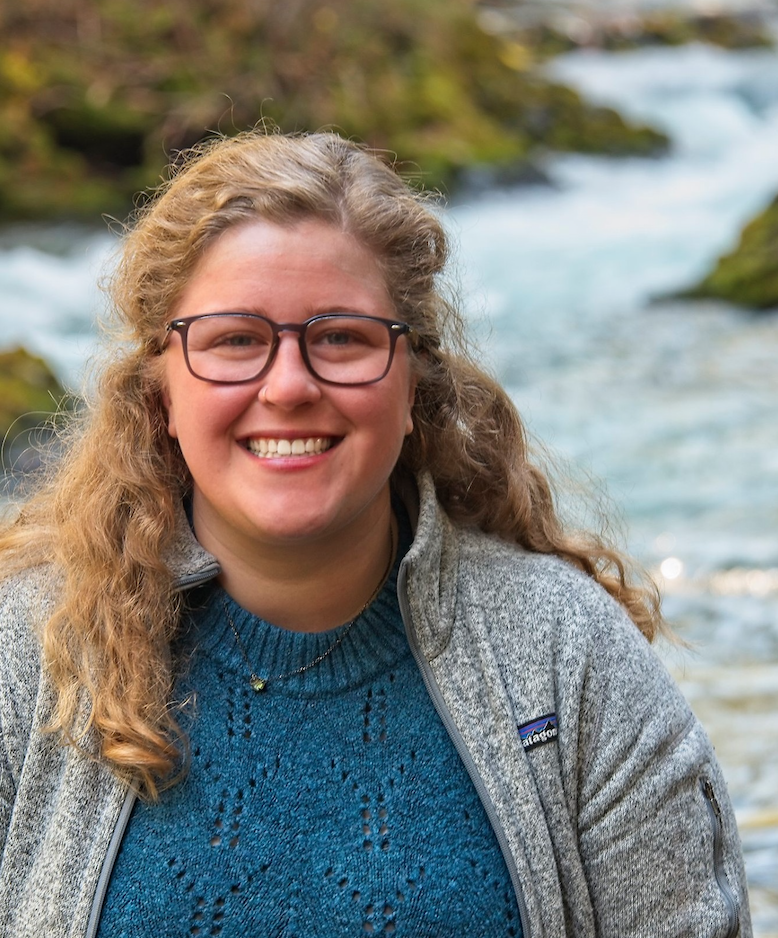
Cara Christensen was a Master’s student in Rangeland Ecology at Oregon State University. Her research was on the North Steens Wildlife Habitat Improvement study. As part of this team, she will be collected data on the short-term effects of juniper removal on songbird diversity.

Lindsey Perry is a past phD student and post-doc with the Dinkins lab studying common raven ecology in eastern Oregon and the Great Basin. Lindsey graduated from the Dinkins lab in December of 2023 but has chosen to stay on with the lab to continue her work with ravens until 2025. Her research focused on behavior, habitat selection, annual movement and diet of ravens. She holds a masters degree in Biological Sciences from Michigan Technological University where her research focused on habitat use of common hippopotamus, and associated human-wildlife interactions in Sierra Leone. Watch Lindsey’s defense by clicking the button below:
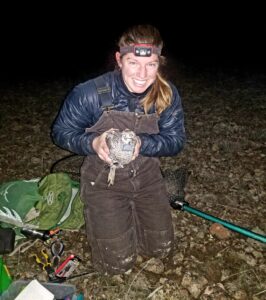
Terrah Owens is a past PhD student in Animal and Rangeland Sciences at Oregon State University who graduated in December 2023. Her research focused on 1) how disturbance effects the distribution of avian predators in the sagebrush ecosystem, 2) how disturbance and avian predator densities interact and effect sage-grouse, 3) how fragmentation effects movement and space use of sage-grouse. She currently works as a Natural Resource Scientist at the Idaho National Laboratory. Current contact information: terrah.owens@inl.gov. Watch Terrah’s defense by clicking the button below:
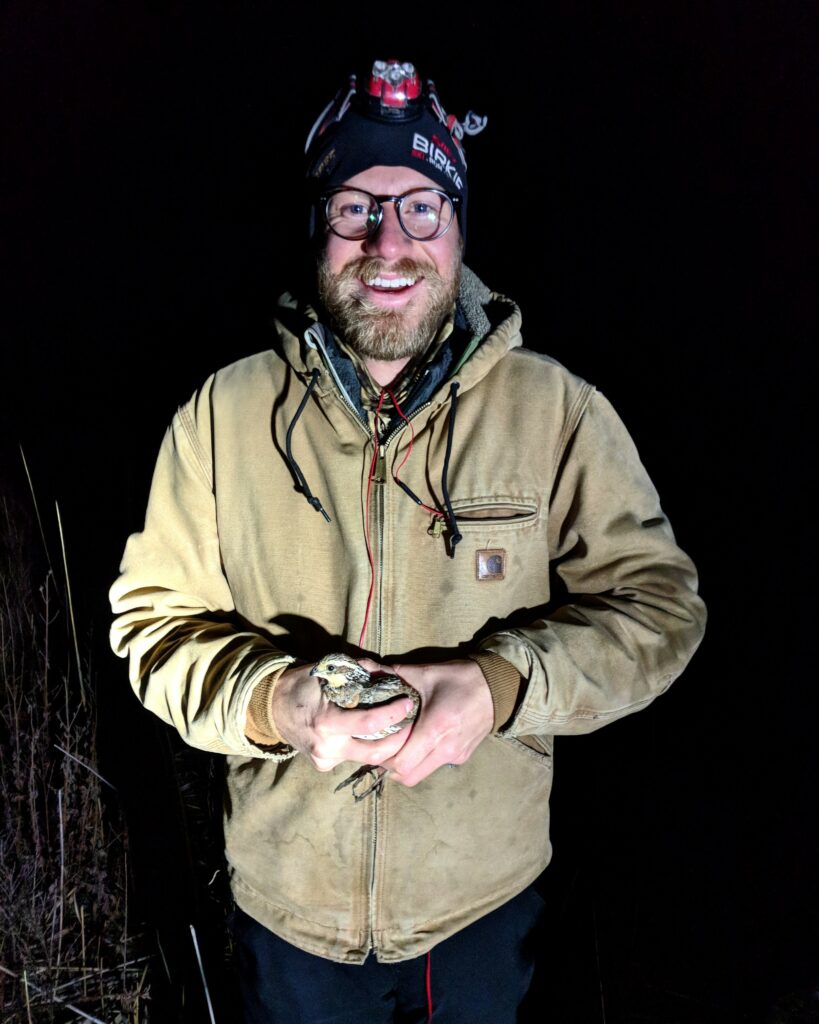
Alan Harrington is a past Master’s student who graduated in the spring of 2022. Alan’s graduate research assessed different aspects of how or under what circumstances sage-grouse conservation
investments benefit other sagebrush wildlife. He is specifically interested in whether songbirds that
rely on sagebrush country during the breeding season receive these conservation benefits, and
seeks to assist managers in the identification of overlapping conservation goals. Current contact information: alan_harrington@fws.gov

Claire Revekant is a past Master’s student in the Department of Animal and Rangeland Sciences at Oregon State University. She completed her thesis project in 2021 investigating sage-grouse predator abundance within and outside the sage-grouse conservation policy areas of Wyoming, and relating predator locations to human features across the landscape. This study helped to determine (1) what habitat or structural factors are associated with higher predator and songbird abundance (2) if avian and mammalian predator abundance differs between Core and Non-Core Areas and (3) if conservation policy implemented for an umbrella species affects sagebrush-obligate songbird abundance.
